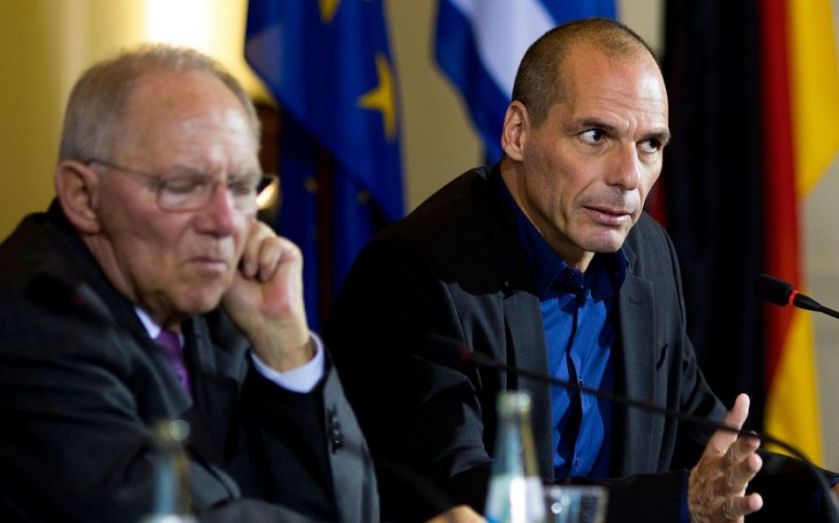Eurozone “personality clash”: German and Greek finance ministers come face-to-face once more

The German and Greek finance ministers will meet for a third time this afternoon, as the struggle to reach an agreement on Greece's bailout package continues.
Wolfgang Schaeuble and Yanis Varoufakis will come face-to-face in Brussels at 2pm, ready to lay out their opposing demands once more.
While Greece wants to renegotiate its €172bn (£127bn) rescue programme, Germany has remained adamant that the only choice for Greece is to stick with the current plan. If the end of the month arrives and no agreement has been reached, this could spell the end for Greece's Eurozone membership.
The two leaders were described as having a “personality clash” by a European official who spoke to the BBC. "There is a real problem of personalities and I understand that. Schaeuble is outraged by comments made by Varoufakis,” he said, in reference to the different negotiating style adopted by the Greek finance minister.
Both previous meetings between the pair proved unsuccessful, even once Greece had made a number of concessions.
When the radical left-wing Syriza party was first voted in in January, it promised to completely renegotiate Greece's deal with its creditor nations and do away with the harsh austerity measures that have been imposed on the country. But yesterday, Greece instead put forward a proposal for a six-month extension of its Eurozone loan programme.
Germany rejected this, however, with Schaeuble's spokesman saying the letter from Athens was “not a substantive proposal for a solution”.
According to the German finance ministry, the request was an attempt at "bridge financing, without meeting the requirements of the programme”. It said the letter dis not “meet the criteria agreed upon in the Eurogroup on Monday”.
Germany insists that the only option for Greece at this point is to accept a renewal of the bailout package originally agreed.
The outcome is important for Germany – it is by far the largest creditor to Greece, having contributed around €65bn (£48bn) to its €270bn (£199bn) rescue package. Today will be crucial in terms of setting out the options for Greece if it wishes to remain in the single currency zone.